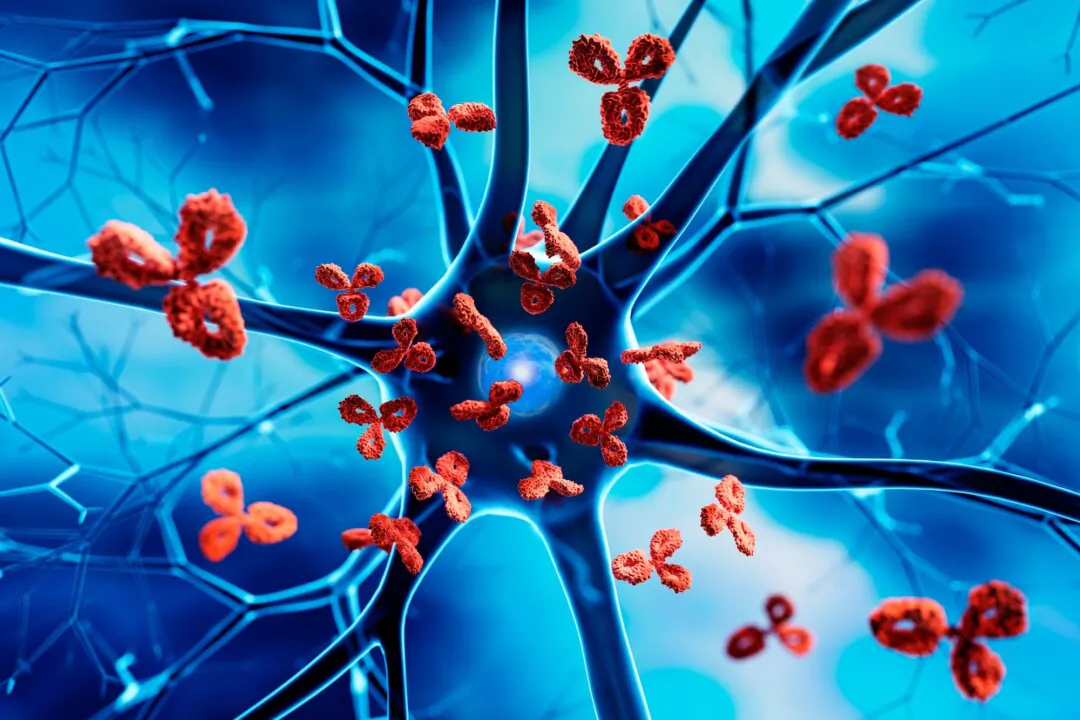A recent study that I co-authored in the International Journal of Molecular Sciences found a damaged intestinal barrier, or leaky gut, can lead to 30-fold increased odds of developing autoimmunity.
Leaky gut allows undigested food, microorganisms, toxins, and other pathogens in the gut to escape into the bloodstream. This can trigger systemic inflammation and promote autoimmunity.
The intestinal walls consist of epithelial cells, which absorb nutrients from food while preventing harmful compounds from passing into the bloodstream. Connecting the epithelial cells are occludin tight junction molecules, which prevent potential pathogens from passing into the bloodstream. Occludin is regulated by zonulin, a protein that tells occludin when to open or close the junctions.
Occludin and Zonulin
When gut damage occurs (I’ll discuss factors that cause damage later in this article), occludin and zonulin get released in this tissue damage. To deal with these now misplaced substances, the immune system produces antibodies against occludin and zonulin. As such, we can identify intestinal permeability through lab testing by screening for elevated levels of zonulin and occludin antibodies.
Our study investigated whether these markers of intestinal permeability relate to markers of autoimmune reactions.
We investigated the lab results of 266 random subjects tested for:
- Occludin antibodies.
- Zonulin antibodies.
- 24 tissue antibodies indicative of various forms of autoimmunity.
The results showed that those with leaky gut had up to 30-fold increased odds of developing autoimmunity compared to those without. They showed an elevation of autoimmune antibodies in 17 out of 24 autoimmune markers, including against the brain, hormone glands, joints, smooth muscles, cardiovascular tissue, and more.
We found that the higher the level of leaky gut antibodies, the higher the level of autoimmune antibodies. In other words, the worse your leaky gut is, the greater your risk for autoimmunity.
Additional Findings
Our research also affirmed previous findings that connect leaky gut to a number of issues.
Leaky Gut Increases the Risk of Neurological Autoimmunity
We also found a correlation between zonulin and occludin antibodies and neurological autoimmunity. The brain has a barrier that serves a function similar to the gut barrier—to allow necessary compounds in and out while protecting the brain from pathogens. The blood-brain barrier is also comprised of zonulin and occludin, which function as they do in the gut. Research suggests that a breakdown of the blood-brain barrier plays a role in neuroinflammatory disorders, brain degeneration, and brain autoimmunity. For instance, past studies have shown a correlation between advanced intestinal permeability and multiple sclerosis. Our data supports previous research, showing a correlation between leaky gut and brain autoimmunity.
Leaky Gut and Bone and Joint Autoimmunity
Leaky gut has also been shown to promote autoimmunity against bone and joint tissue. Recent studies suggest that intestinal permeability can lead to the circulation of bacteria that promote inflammation in the bones and joints.
Leaky Gut and Autoimmunity Against the Thyroid, Liver, Pancreas, Glands, and Gut
Our study also supports past research showing links between leaky gut markers and Type 1 diabetes, autoimmune thyroid disease, adrenal autoimmunity (Addison’s disease), ovarian/testicular autoimmunity, primary sclerosing cholangitis, autoimmune hepatitis, gastric autoimmunity, and chronic inflammatory bowel diseases.
The 3 Stages of Autoimmunity
Having autoimmune antibodies doesn’t necessarily mean that you have an autoimmune disease or even symptoms. Clinically, I’ve found that autoimmunity moves through three stages:
Stage 1: Positive antibodies but no symptoms or disease.
Stage 2: Elevated antibodies and symptoms, but the patient’s condition hasn’t progressed to a disease state that requires medical intervention.
Stage 3: Elevated antibodies and the person’s autoimmune damage is extensive enough to be diagnosed as a disease and require medical treatment.
If you are in Stage 1 or Stage 2, you may potentially prevent the progression of the autoimmunity by repairing your leaky gut, identifying your autoimmune triggers, and maintaining a diet and lifestyle that dampens inflammation. If you are in Stage 3, implementing strategies that dampen autoimmune expression can prevent the disease from worsening.
Things That Cause Leaky Gut
Leaky gut doesn’t appear out of nowhere. Through review of the research and clinical practice, I’ve found multiple factors that contribute to leaky gut. They include:
- Gluten sensitivity
- Sensitivity to other foods (dairy, egg, soy, lectins, etc.)
- Gut infections—bacterial, parasitic, or fungal
- Hormonal deficiencies or imbalances
- Past brain injury—brain development or degeneration issues
- Blood sugar instability—chronically high or low blood sugar
- Low blood pressure
- Gut autoimmunity
- Chronic stress
- Chronic sleep deprivation
- Corticosteroids, antibiotics, NSAIDs, and other drugs
- Alcohol consumption
- Glutathione deficiency
- Vitamin D deficiency
- Dysbiosis (imbalance of bad bacteria)
Understanding which underlying mechanisms caused your leaky gut gives you a better understanding of the scope of your issue and how to address it. Someone with a past brain injury is going to have a much different strategy than someone who was on a round of antibiotics. The great thing is that by addressing the underlying mechanism in addition to leaky gut itself, you will significantly improve your overall health and well-being.
Leaky gut, or intestinal permeability, is a serious issue. It isn’t a passing health fad but is a formidable condition that could shape the rest of your life. By ignoring the signals from your body to manage your leaky gut, you risk triggering or exacerbating an autoimmune condition.



